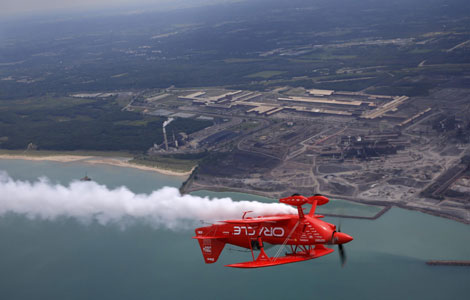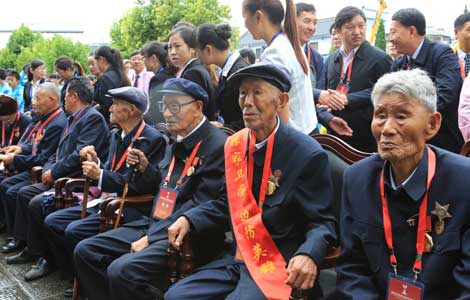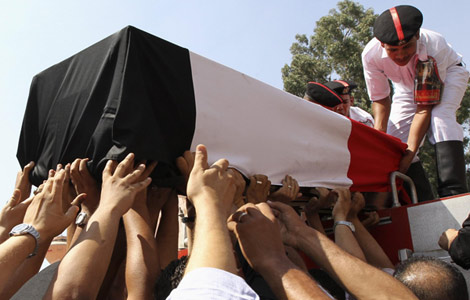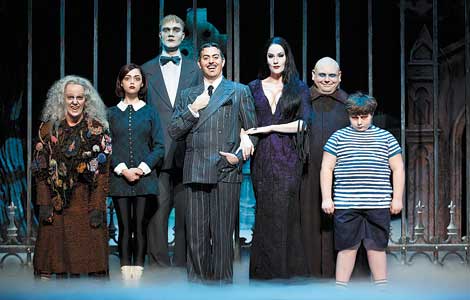Manning 'sorry' for US secrets breach
Updated: 2013-08-15 06:43
(Agencies)
|
||||||||
![U.S. Army Private First Class Bradley Manning (R) departs the courthouse at Fort Meade, Maryland, in this July 30, 2013 file photo.[Photo/Agencies] Manning 'sorry' for US secrets breach](../../attachement/jpg/site1/20130815/d4bed9d4d22013764c1d1a.jpg) |
|
US Army Private First Class Bradley Manning (R) departs the courthouse at Fort Meade, Maryland, in this July 30, 2013 file photo.[Photo/Agencies] |
'HYPER-MASCULINE ENVIRONMENT'
Captain Michael Worsley, who treated Manning from December 2009 to May 2010 during his deployment in Iraq, testified that the stress Manning had felt from his job as a low-level intelligence analyst was compounded by being in a "hyper masculine environment" of a combat zone.
"Being in the military and having a gender identity issue does not exactly go hand in hand," Worsley said. "You put him in that kind of environment, this hyper masculine environment ... with no coping skills, the pressure would have been incredible."
That pressure reached a peak when Manning punched another soldier, Worsley said. He said he had met infrequently with Manning and had no input from his superiors until the punching incident.
Navy Reserve Captain David Moulton, a forensic psychiatrist, said he had diagnosed Manning as having gender dysphoria, or wanting to be the opposite sex, as well as narcissism and obsessive-compulsive behavior. Those problems were compounded by the unraveling of a romantic relationship, the stress of serving in a Baghdad combat base and post-adolescent idealism, he said.
"Manning was under the impression that the information he was giving was going to change the way the world saw the wars in Iraq and Afghanistan, and future wars, actually," said Moulton, who interviewed Manning for about 21 hours and spent more than 100 hours on the case.
'NO WAR WAS WORTH IT'
The psychiatrist said Manning thought it "would lead to a greater good. Society as a whole would come to the conclusion that the war wasn't worth it, that no war was worth it."
Manning's sister, Casey Major, 36, of Oklahoma City, testified about how her parents' alcoholism and infighting compelled her to play a lead role in raising her brother.
She recounted their early days together in Crescent, Oklahoma, reviewed family photos, and said, "I just hope he can be who he wants to be. I just hope he can be happy."
Troubles at home prompted a teenaged Manning to move to Potomac, Maryland, to live with his aunt, said Debra van Alstyne, the aunt who took him in. She recalled that Manning had joined the Army in the hope of going to college on the GI bill, after having difficulty balancing classes and a job at Starbucks.
The material Manning released that shocked many around the world was a 2007 gunsight video of a US Apache helicopter firing at suspected insurgents in Baghdad. A dozen people were killed, including two Reuters news staff. WikiLeaks dubbed the footage "Collateral Murder."
Manning, described by his superiors as an Internet expert, faces the prospect of decades of monotonous prison life - with no online access - once he is sentenced.

 Demolition work starts on rooftop villa structure
Demolition work starts on rooftop villa structure
 Thrills in store for Chicago Air and Water Show
Thrills in store for Chicago Air and Water Show
 Memorial to expeditionary soldiers opens
Memorial to expeditionary soldiers opens
 Death toll from Egypt violence rises to 638
Death toll from Egypt violence rises to 638
 Tunes that travel
Tunes that travel
 Macabre Addams Family tests musical tastes
Macabre Addams Family tests musical tastes
 Spielberg has desire to work with Zhang Yimou
Spielberg has desire to work with Zhang Yimou
 Li Na advances to 3rd round at Cincinnati Open
Li Na advances to 3rd round at Cincinnati Open
Most Viewed
Editor's Picks

|

|

|

|

|

|
Today's Top News
No remorse as Abe marks surrender anniversary
China to be world's No 1 consumer
China Mobile looks to data services
Beijing, Moscow hail military ties
Japan exports to China at lowest in four years
Fish ecosystem 'on verge of collapse'
First public rental housing fund launched
Trimming standard ideas of butchering
US Weekly

|

|







